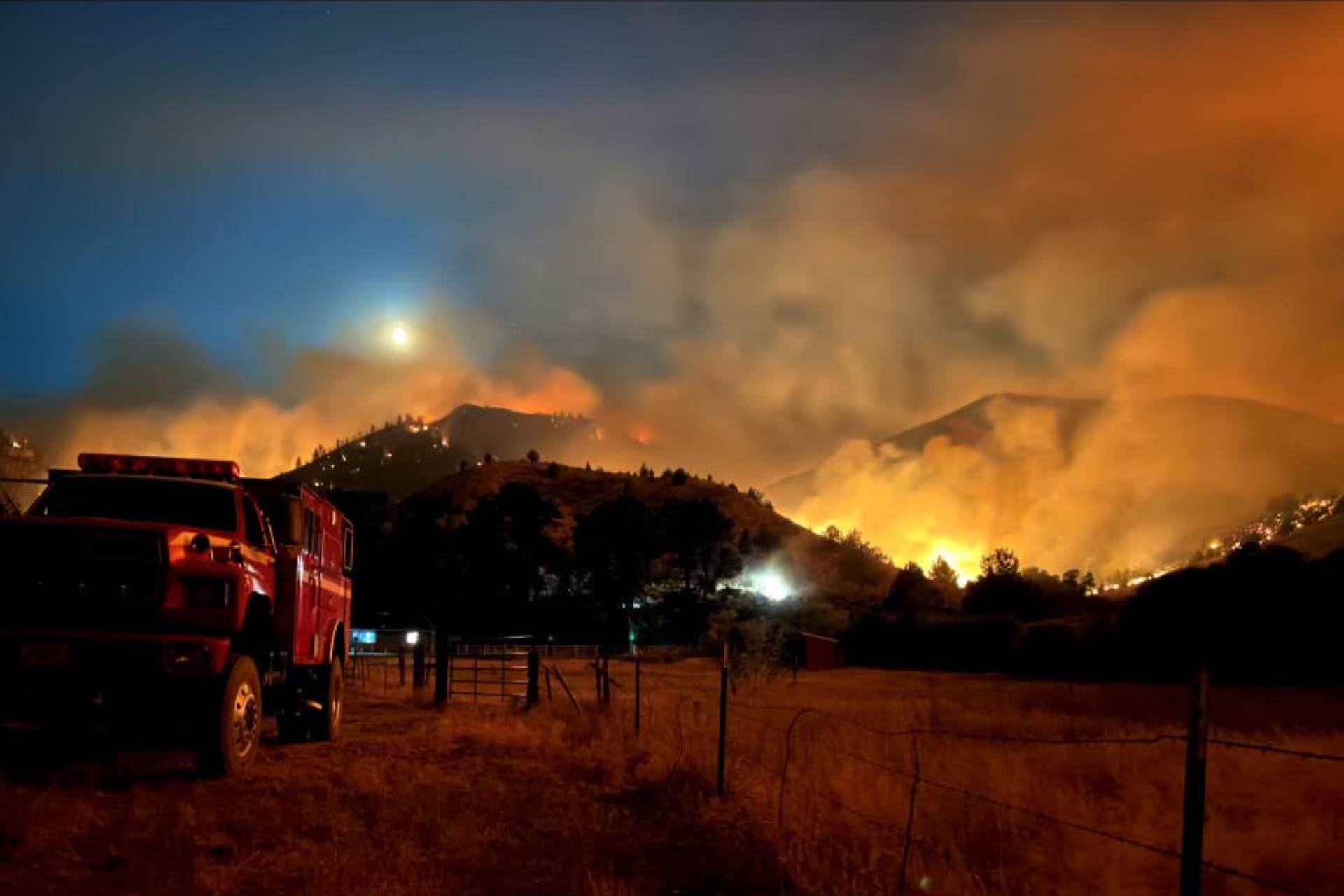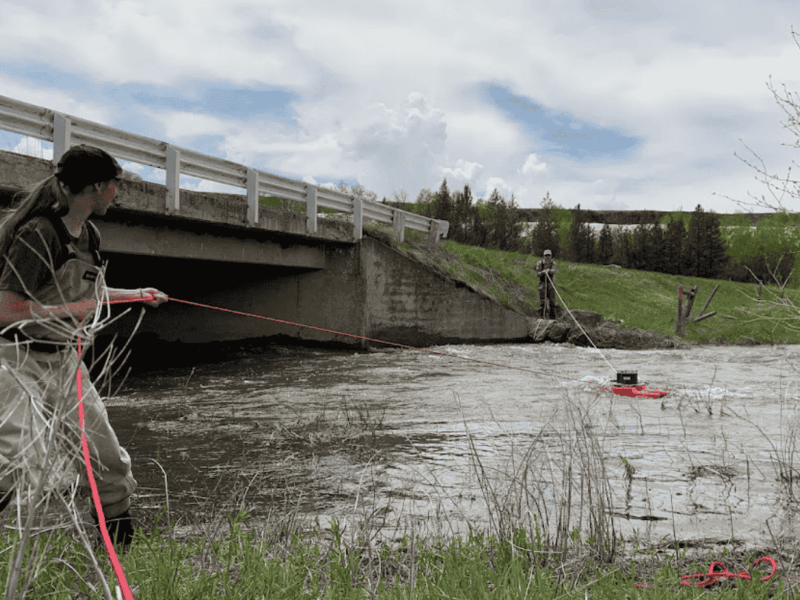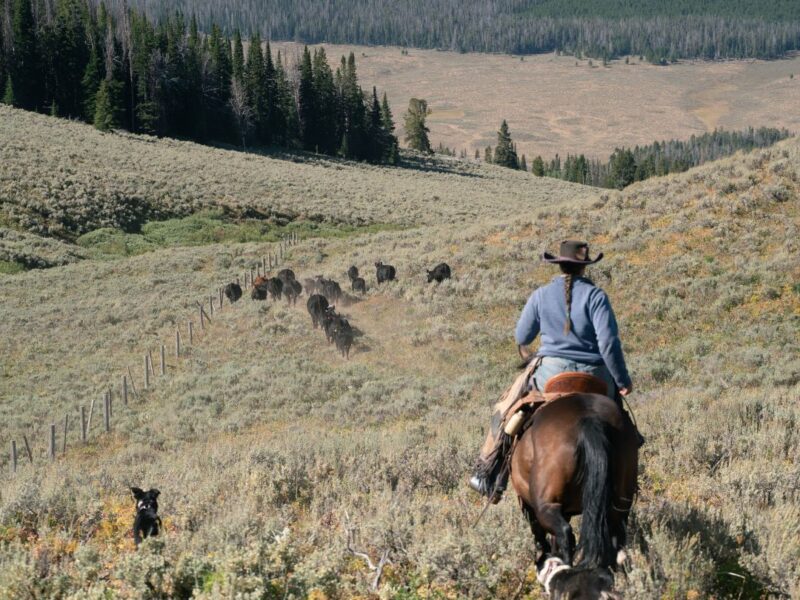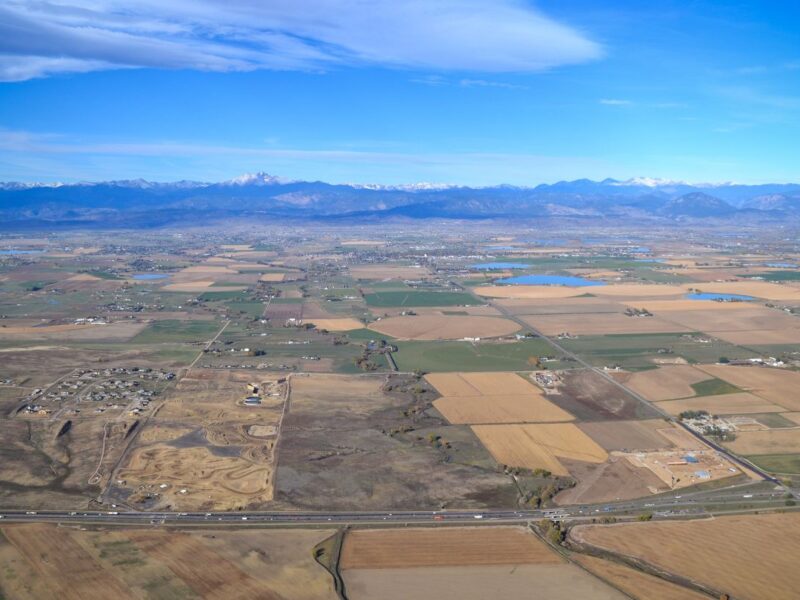“I’ve got 5 volunteers moving my cows this morning – only 2 of them are related,” texted rancher and WLA contractor Kim Kerns, who runs cattle and sheep in Baker County, Oregon. The day before, she was helping folks on the nearby Durkee Fire, currently the largest wildfire in the U.S. at almost 290,000 acres, when then the conditions shifted and she had fires on three sides of her cattle. Now she was the one needing help. Although those fires were several miles away, she didn’t want to take any chances. She and her neighbors moved her cattle to a more defensible place before Wednesday afternoon’s pyrocumulus thunderstorm caused by the extreme heat of the fire resulted in hurricane-force winds and 2,800 lightning strikes across the area. Kerns recalls the apocalyptic scene in an Instagram post, writing “Watching all the fires around us explode when the front hit was insane.”

Kim and her neighbors are part of a local Rangeland Fire Protection Association (RFPA). RFPAs are volunteer wildland fire crews of ranchers and farmers who are trained and authorized to respond to fires on private and state lands. They fill a gap in remote places with no existing fire protection. RFPAs can leverage the skills and motivation of ranchers who often have advantages over agency wildland firefighters through their in-depth local knowledge of the landscape, faster response times, existing communication networks, and a strong drive to protect their and their neighbors’ herds, forage, and homes. Kerns described how her local RFPA jumped into action this week:
“On the first night we were there, the Durkee ranchers I know who lost a bunch of cows and most, if not all, of their grass, were busy setting up structure protection for elderly neighbors, organizing and managing line building, cow moving, crew safety, and generally keeping the wheels on the mess. There were folks who hadn’t slept in 2 days, keeping going on soggy sandwiches and warm water. They aren’t running on 10 hour shifts when their cows’ lives and their livelihoods and neighbors’ cows and livelihoods are at stake.
“It was truly remarkable.”
There were folks who hadn’t slept in 2 days, keeping going on soggy sandwiches and warm water.
Kim Kerns
The fire comes to this part of Oregon as ranchers here are already facing challenges on multiple other fronts. Kerns and colleagues with Western Landowners Alliance had planned to film a night penning demonstration in Lostine, Oregon this week – a small town in Wallowa County that has become a hotspot for wolf depredations on livestock. But the fires wiped out that plan. Instead Kerns texted us updates on the fire situation while we met with one of the ranchers who had lost many sheep to wolves. The physical and emotional toll of disasters like wildfire and wolf attacks can have devastating impacts on rancher mental health. A number of studies have shown that agricultural producers experience higher levels of psychological stress than the general population. That stress was on Kerns’ mind too. In one text she wrote, “The wheels are falling off these folks. It’s bad.”
Discussing these challenges openly is helping though, leading to collective responses. Ranchers have created support systems in groups like the RFPAs. In Lostine, a grassroots community group of families, dubbed the Lostine Livestock and Community Protection Association, was formed earlier this year.
How you can help
While RFPAs have been a game changer for rangeland firefighting for ranchers, they are struggling to keep up with the costs. Fuel is expensive and members are paying for it out of their own pockets. Additionally, much of the equipment, some of which is military surplus, is outdated, which makes parts costly to replace. Please consider donating to the Burnt River RFPA GoFundMe fundraiser to cover some of the costs of parts and fuel and to support people who are helping their neighbors.








